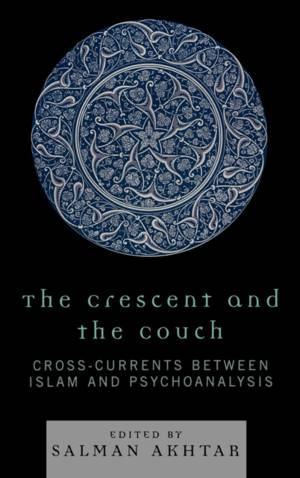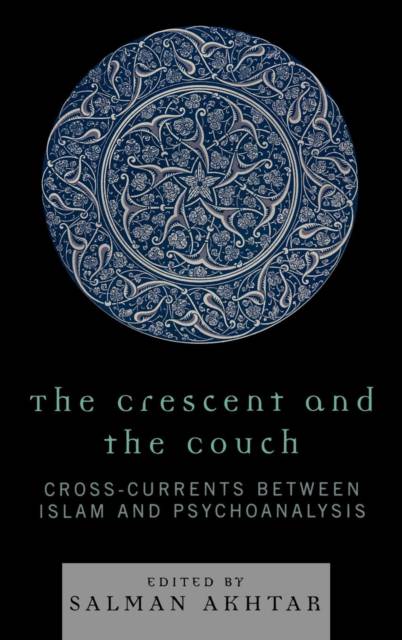
- Retrait gratuit dans votre magasin Club
- 7.000.000 titres dans notre catalogue
- Payer en toute sécurité
- Toujours un magasin près de chez vous
- Retrait gratuit dans votre magasin Club
- 7.000.000 titres dans notre catalogue
- Payer en toute sécurité
- Toujours un magasin près de chez vous
The Crescent and the Couch
Cross-Currents Between Islam and Psychoanalysis
Salman Akhtar
Livre relié | Anglais
200,45 €
+ 400 points
Description
The face of Islam currently visible to the West bears the features of orthodoxy, fundamentalism, the so-called "new anti-Semitism," and political terrorism. Images of inter-ethnic bloodshed in Iraq, bellicose Iranian posturing, Al-Qaeda training camps, and zealot suicide bombers are the basic grammar of such perception. While not entirely untrue, this portrayal of Islam also emanates from the 'villain hunger' of the West, a hunger that has increased since the fall of the USSR. The false equation of 'Muslim' with 'Arab' has also created stereotypes and ambiguities. The fact is that most Muslims of the world are not Arab and many Arabs are not Muslims. Indeed the people, culture, traditions, and even religious practices of Islam are highly varied and complex. Its belief systems range from the austere Wahabbi rigidity to lyrical Sufi mysticism. Its cultural fabric includes the dark spots of suppression of women on the one hand and breathtakingly beautiful fibers of calligraphy, architecture, rug weaving, and romantic poetry on the other hand. Attempting to advance knowledge about Islam and to create the possibility of a dialogue between Islam and psychoanalysis, The Crescent and the Couch brings together a distinguished panel of Muslim and non-Muslim contributors from the fields of history, religion, anthropology, politics, and psychoanalysis. Together these authors highlight the world-changing contributions of prominent Muslim figures, and elucidate the encounter of Islam with Christianity, Judaism, and Hinduism. Moving on to matters of family, individual personality formation, human sexuality, and religious identity, they also address clinical issues that arise in the treatment of Muslim patients as well as the technical work of Muslim psychoanalysts. The book thus becomes a literary ambassador of sorts, bridging the conceptual gap between psychoanalytic theory on the one hand and Islamic conceptualizations of life on the other. It is a work of synthesis at its best and since bringing diverse thin
Spécifications
Parties prenantes
- Auteur(s) :
- Editeur:
Contenu
- Nombre de pages :
- 434
- Langue:
- Anglais
Caractéristiques
- EAN:
- 9780765705747
- Date de parution :
- 11-03-24
- Format:
- Livre relié
- Format numérique:
- Genaaid
- Dimensions :
- 165 mm x 227 mm
- Poids :
- 771 g







